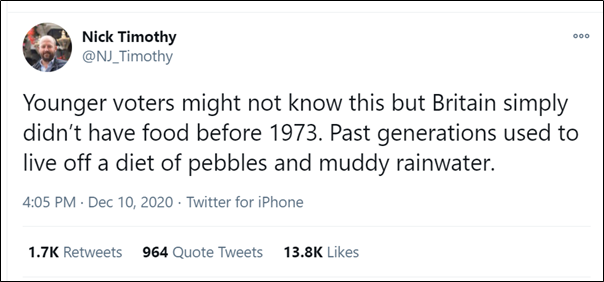
Like @ProfTimBale, I'll be standing down shortly as Co-Director of the @MileEndInst. It's been one of the best parts of my job in recent years, so thanks to the brilliant @ProfTimBale & @sofiacusano and to everyone who took part in our events. A few lockdown highlights follow...
https://twitter.com/ProfTimBale/status/1344660389091487750
Our "Future of British Democracy" series explored reform of the Civil Service, the future of the House of Lords, "Corruption and the British State", and reform of Judicial Review. All our webinars are freely available on our YouTube channel.
https://twitter.com/MileEndInst/status/1344229240670076929
Our event on "New Directions in Black British History" showcased the fabulous work of @DeannaLyncook, @oliviawyatt1999 and @hisnameissatya, with a discussion led by @rob__waters.
Our new podcast, led by @ProfTimBale, featured @Dannythefink, @youngvulgarian, @debmattinson, @robfordmancs, @ProfSobolewska & many more. I especially enjoyed marking 30 years of German Reunification with William Waldegrave & Christina von Hodenberg.
https://twitter.com/MileEndInst/status/1313429234048815104
The podcast also tackled subjects like the history of anti-Semitism, in this fascinating discussion between @MiriERubin and @Freedland.
https://twitter.com/MileEndInst/status/1282993313528909831
Other highlights included @DrSophieHarman's brilliant YouTube series on "Global Health Security and Pandemics", and blogposts on everything from Boris Johnson's first year as prime ministers to the winners of our first undergraduate research prize.
Thanks to everyone who came to our events & to all who gave up their time to speak, write or film for us. The @MileEndInst has been a fantastic part of my life in recent years (there may be one last event to come...), & I can't wait to see what the new team does in the future.
• • •
Missing some Tweet in this thread? You can try to
force a refresh






